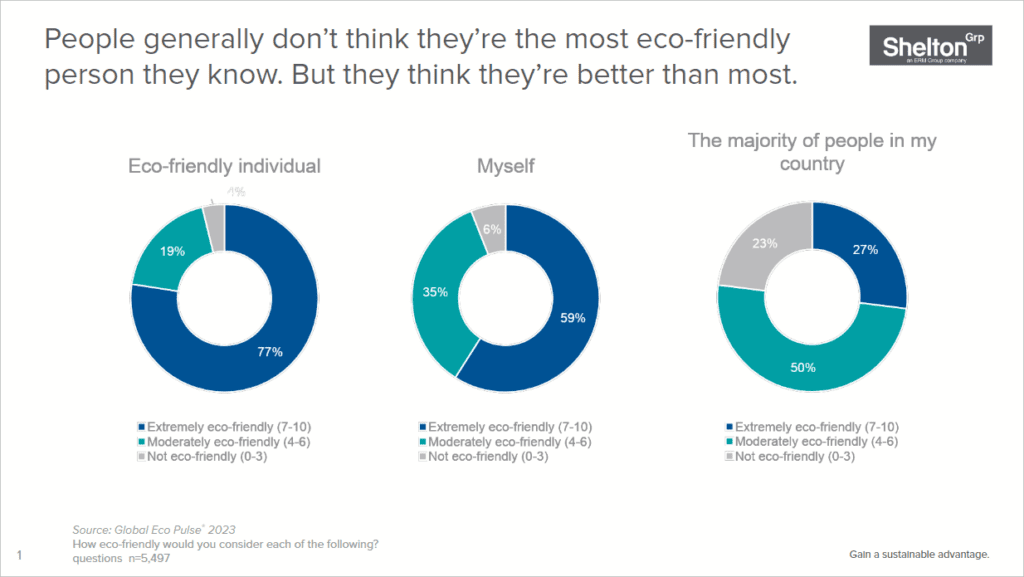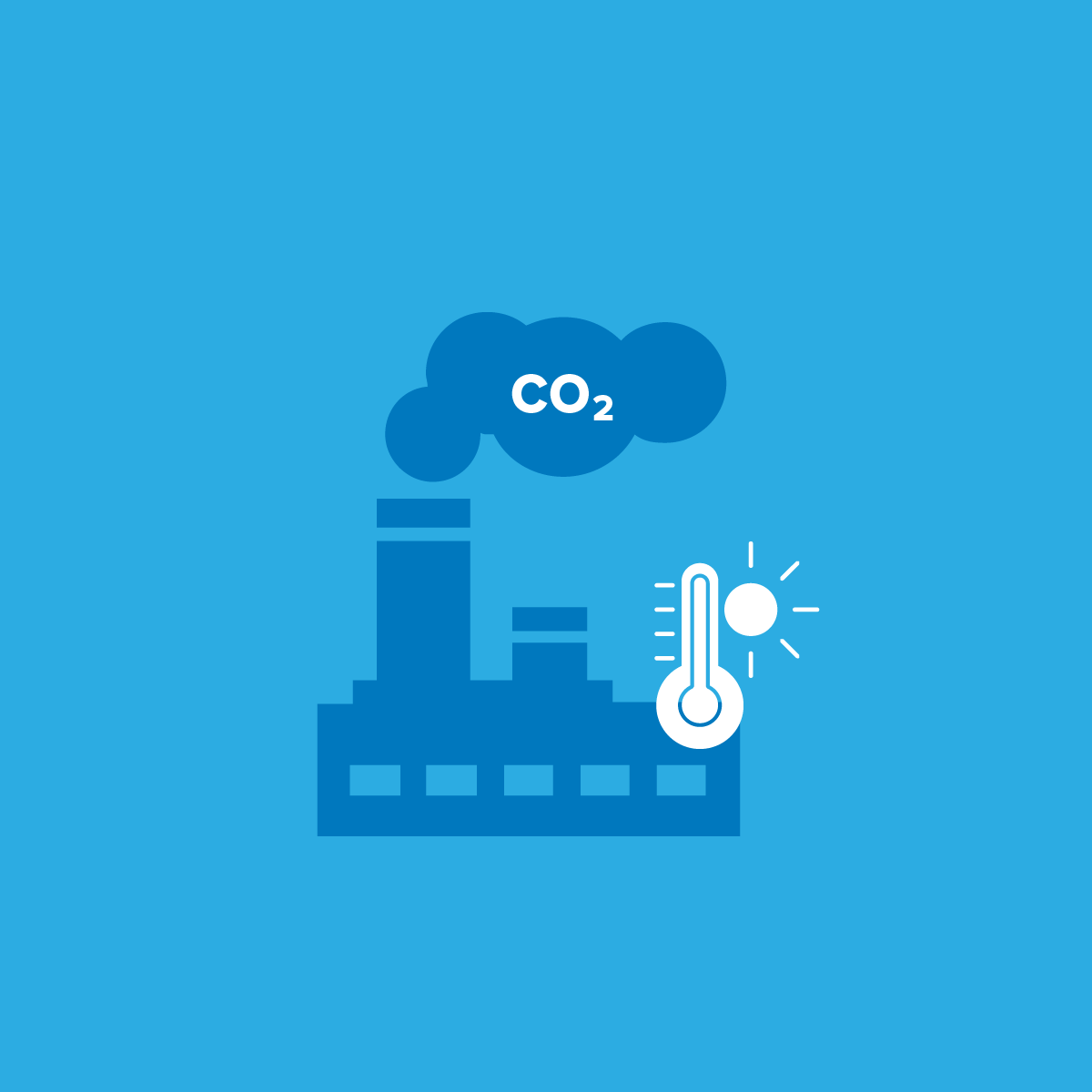Are you greener than the rest?
Shelton Stat of the Week
61% of people around the world say buying/using eco-friendly products is an important part of their personal image.
— Eco Pulse®, 2023 (Global)
- First, we asked, “Think of someone who you consider to be eco-friendly. What behaviors or attitudes do they have that make you think they are eco-friendly?” This was an unaided, open-ended question. On average folks came up with two behaviors that indicate someone is eco-friendly. As we categorized the verbatim answers, responses related to recycling and sorting waste came out on top (35% of our global respondents gave this kind of answer), followed by avoiding waste altogether (18%), transportation-related activities (13%) and then in fourth place, buying and using sustainable products (10%). So even though globally 61% of us say that buying/using eco-friendly products is an important part of our personal image, only 10% of us offer that up, unaided, as an indicator that a person is eco-friendly.
- Then we gave a list of activities and asked our respondents to check all the behaviors that apply in determining if that person they imagined in the open-ended scenario is actually eco-friendly. Purchasing eco-friendly products still came out 4th on the list with 55% of respondents choosing it, and recycling still came out on top, with 65% choosing it. But reusing items when possible came in second (59%), and bringing reusable bags to the grocery store came in third (55%). Choosing eco-friendly transportation options moved down to seventh place (43% chose this), and items related to household energy use are even further down the list (like using renewable energy, adjusting their thermostat and updating an older home to be more energy efficient). Clearly, the mental model around eco-friendliness is around waste reduction for most, not around energy use reduction.
- What’s most interesting about this exercise from a sustainability marketing & communications standpoint, though, is how people see themselves compared to that eco-friendly person they described AND how they see themselves compared to the rest of the people in their country. You can see the answers in the graphs below. In short, most folks think they’re not quite as eco-friendly as the most eco-friendly person they know … but they think they’re much more eco-friendly than the rest of the people in their country.

This poses a challenge for sustainability marketers. If the majority of us conceive of ourselves as already doing a lot of the right things from a sustainability perspective, then we don’t see a need to change or do anything else. And that means messages related to taking action for the planet – whether it’s behavior changes or purchases – could fall on deaf ears.
This is why it’s so important for companies to begin telling their greenhouse gas (GHG) emissions reduction stories. As I’ve written about many times before, companies have perpetuated the mental model that “eco-friendliness = recycling” by only promoting their recyclability and recycled content stories. In truth, we can’t recycle our way out of climate change; we have to reduce our fossil fuel use. The more companies tell that story, the more people will begin to expand their understanding of the actions they need to take in their own lives – and the more they’ll appreciate and prefer the companies and brands leading the way on GHG reduction.

Countries adopt mid-century greenhouse gas emissions goal for shipping
— Reuters
While any step toward reducing GHG emissions is a positive one, the new International Maritime Organization’s (IMO) net-zero goal is an example of how it can go wrong when you don’t put forward strong goals. This Reuters article details IMO’s new goal and the reactions it has received.

Climate change calls for cuts in carbon emissions. These US companies are leading the way
— USA Today
We have often shared our research insights that consumers are putting their wallets behind their values, but it can be hard for consumers to know how much of an environmental impact a company is truly having. This USA Today piece analyzes and ranks 700 companies on their GHG emissions impacts so you can get a better look at what companies are actually doing.
Buzz On Buzzwords
Find out what Americans think about sustainability, what different “green” words mean to them and how they interpret and respond to the jargon you may be using.


-
-
-
-
-
-
-
-
-
-
-
-
-
-
-
-
TAGS:Corporate Sustainability, Energy & Environmental Marketing, Environmental Issues